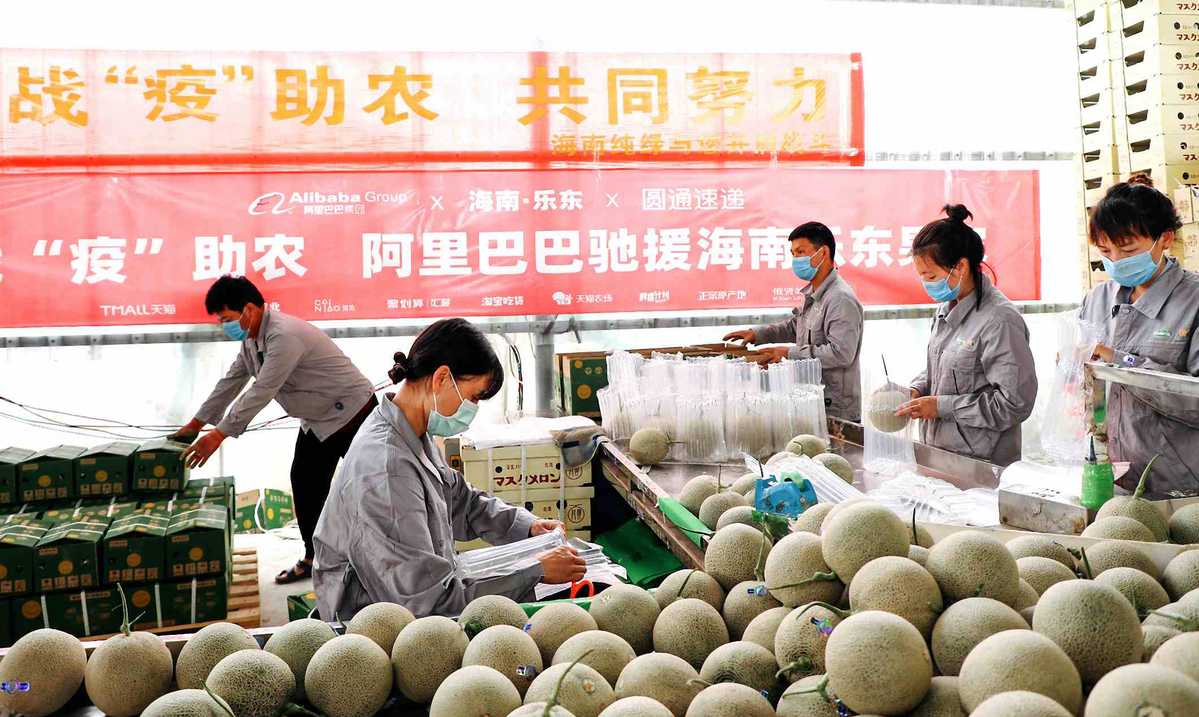Since Saturday, May 22, 2021, China, the world’s most populous country, has been celebrating the life and times of one of its greatest achievers. Prof Yuan Longping, an agronomist, who died at the age of 90; but it is not just his longevity that his countrymen and women are dancing for.
China is paying tribute to the man who broke its hunger streak and helped the nation achieve near food security at a time when hunger was tormenting a significant fraction of the human race.
Today, China is the world’s largest producer of rice, and, surprisingly, it uses only nine per cent of its arable land to produce this.
Known as China’s “father of hybrid rice”, Yuan has been celebrated for developing China’s first hybrid rice varieties in the 1970s. This and his subsequent breakthrough research earned him the status of a national hero, according to reports in Chinese media, including the South China Morning Post.
He was awarded the World Food Prize in 2004 for “pioneering research that helped transform China from food deficiency to food security within three decades”. That year, Yuan shared the WFP with another agronomist, this time from West Africa. The joint winner was Dr Monty Jones from Sierra Leone. Jones’ research, incidentally, was also on the Development of New Rice for Africa (NERICA), with the potential to increase rice yields in Africa, according to Wikipedia.
Nigeria’s Dr Akinwumi Adesina (whose name featured on this column last week) won the same World Food Prize in 2017. He was awarded that prize for being an “Innovator in funding and financing of African agriculture”. That is part of the acknowledgement of innovative financing structures being developed by the African Development Bank (AfDB), of which he is the president, in the area of financing agriculture in Africa.
That is hardly surprising given that he went to the AfDB straight from his post as Nigeria’s Minister of Agriculture.
A few relevant matters arise from Yuan’s life and accomplishments. The first is his long service to his country. He was said to have started his research some years before China’s Great Leap Forward (1958-62). This was the alternative name of China’s second Five-Year Development Plan. Under it, the Chinese administration of Mao Zedong launched an aggressive (some say harsh) plan to transform China from an agrarian economy to a socialist society based on the people’s communes.
Situating Yuan’s role in China’s strides towards food security within the context of the Great Leap Forward era is quite significant. Writing about that programme, Prof Jeffrey D. Sachs says in his book, The End of Poverty: Economic Possibilities of Our Time: “The Great Leap Forward was a mad scheme of Mao’s to accelerate industrialisation through the introduction of so-called backyard steel mills. Many peasants, throughout the country, were told to stop planting and start producing steel in tiny and ineffective, and totally misconceived backyard mill. This policy ended up causing mass starvation, the news of which did not reach those in charge because of false reports and the fantasy world of the top leadership at the time, particularly of Mao. Tens of millions of deaths resulted.”
Indeed, China, like many countries, has experienced hunger, and many of its citizens paid the price. Those millions of Chinese that perished during the Great Leap Forward because of hunger were just a fraction of millions that died in that country because of lack of food.
China has gone through series of transformation since then, yet Yuan remained relevant to the economy for decades. As late as 1996, some 40 years after he commenced his research, China’s ministry of agriculture asked him to begin a programme to breed “super rice”.
That request followed a series of breakthrough researches he had undertaken into rice cultivation. Through this man, China became the first country to produce hybrid rice. In 1964, he had propounded a theory that a male-sterile grain could be crossed with other plants to boost yields. However, he had to wait till 1973 to cultivate the first hybrid rice, which itself was made possible by the discovery of a wild rice species that made the breakthrough possible.
However, producing this hybrid in mass was not possible until 1976. This feat has been a major plank on which China’s food security rests.
The point here is that such great strides and innovations require time to take root and succeed. They, therefore, need for their success, political and institutional stability that engender continuity and persistence.
China’s political economy today, in terms of philosophy and key players has changed significantly. Yet the fundamentals, as well as the focus, have not changed. That has also meant that players who represent or signify the targets have remained.
So, it is the institutions and what they represent or stand for that matter, not necessarily the individuals. In this regard, it is pertinent to ask whether it is possible for a Nigerian agronomist working in one of the country’s research institutes, and who was there before or by 1960, to be there today, or even 10 years ago?
The other half of the coin is that the professional must also be willing to stay on the job. In other words, he or she must have and be ready to give the commitment that the task demands. In the case of Yuan, he declared this quite clearly.
“My lifetime pursuit is to ensure all people stay away from hunger,” he was quoted as saying to the media.
While the Great Leap Forward years brought harsh conditions, subsequent agricultural reforms introduced began to produce positive results. Sachs declares that China began to achieve major increases in crop productivity. These were achieved partly through the introduction of high-yield crops during China’s Green revolution. Within that period, for instance, cereal yields more than doubled, from 1.2 tons per hectare in 1961, to 2.8 tons in 1978, according to Sachs.
That increase in yields has continued. In 2011, Yuan was said to have developed new hybrid rice that can produce 13.9 tons of rice per hectare. That figure was the culmination of dedication. In Nigeria, available information says that a yield of 10 tons per hectare is possible.
Imagine for a while what life in China would have been without this singular achievement on rice. By 1962, China’s population was roughly 682 million. Today, that population has more than doubled to about 1.444 billion people.
China’s annual rice production is currently put at about 148 million metric tons, which puts it at the number one spot on the producers’ table. It is followed by India, Indonesia, Bangladesh, Vietnam and Thailand, in that order.
While there is still hunger in China, its level would have been worse than it is now without the giant strides the country has made in rice production. About five years ago, the incidence of hunger in that country was put at just 8.7 per cent of the population, roughly half of what it was some six years earlier, which shows the speed at which the country is reducing hunger and poverty. At least 65 per cent of Chinese consume rice as a staple food. So it makes sense for the country to strive for self-sufficiency in its production
One war that Nigeria must fight and win is the battle against hunger. No country that has many of its citizens hungry can claim to be strong, whether militarily or politically. Food security is a great weapon.

 Join Daily Trust WhatsApp Community For Quick Access To News and Happenings Around You.
Join Daily Trust WhatsApp Community For Quick Access To News and Happenings Around You.



